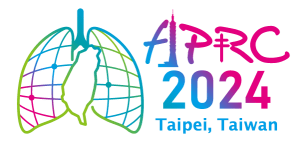Symposium 13:Programmatic Management of Drug-resistant TB: Progress and Challenges
Drug-resistant tuberculosis (TB) is difficult to manage. A substantial proportion of rifampicin-resistant TB have not been detected. Among those who have been detected, some were lost to followed up or died before treatment. Among those who have been enrolled on treatment, a substantial proportion of patients interrupted treatment, in part because the duration of treatment was lengthy and the drugs used were toxic. The expanded use of rapid molecular test has helped detected rifampicin-resistant TB and resistance to second line drugs. The use of short regimens of rifampicin-resistant TB may have great potential to improve outcome of treatment of rifampicin-resistant TB. However, innovative and effective model of care will be crucial for strengthening programmatic management of drug-resistant TB. Mitigating the risk of acquired resistance to new and repurposed drugs has becoming a new challenge. Solution to address catastrophic costs incurred due to rifampicin-resistant TB is urgently needed.
| Time (GMT+8) |
Topic | Speaker | Country / Region |
|---|---|---|---|
| 08:30-09:00 | Progress and challenges of programmatic management of drug-resistant TB in Indonesia | Dr. Erlina Burhan | Indonesia |
| 09:00-09:30 | Application of short regimens of rifampicin-resistant TB in Viet Nam: challenges and opportunity | Dr. Hoang Thi Thanh Thuy | Vietnam |
| 09:30-10:00 | Operation and challenges of Taiwan multidrug-resistant TB Consortium: the way forward | Dr. Chou-Jui Lin | Taiwan |








